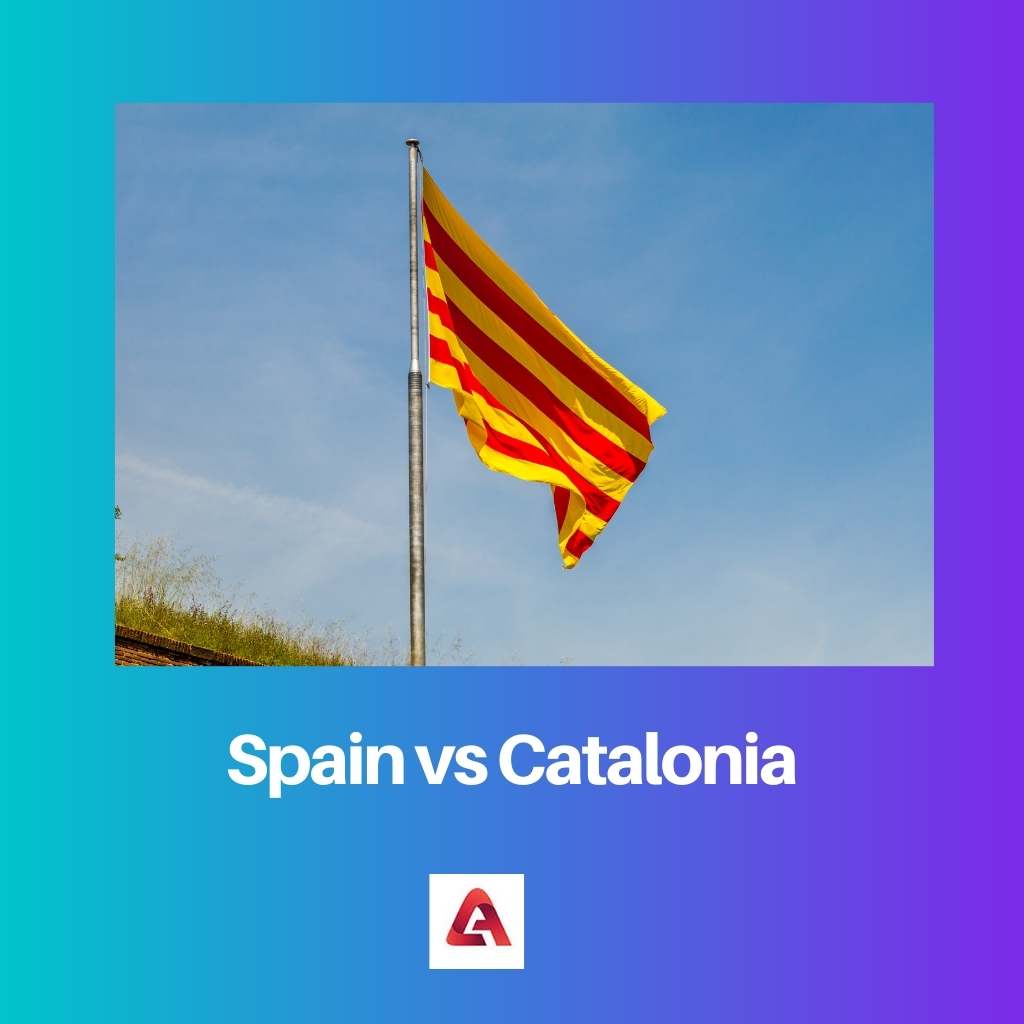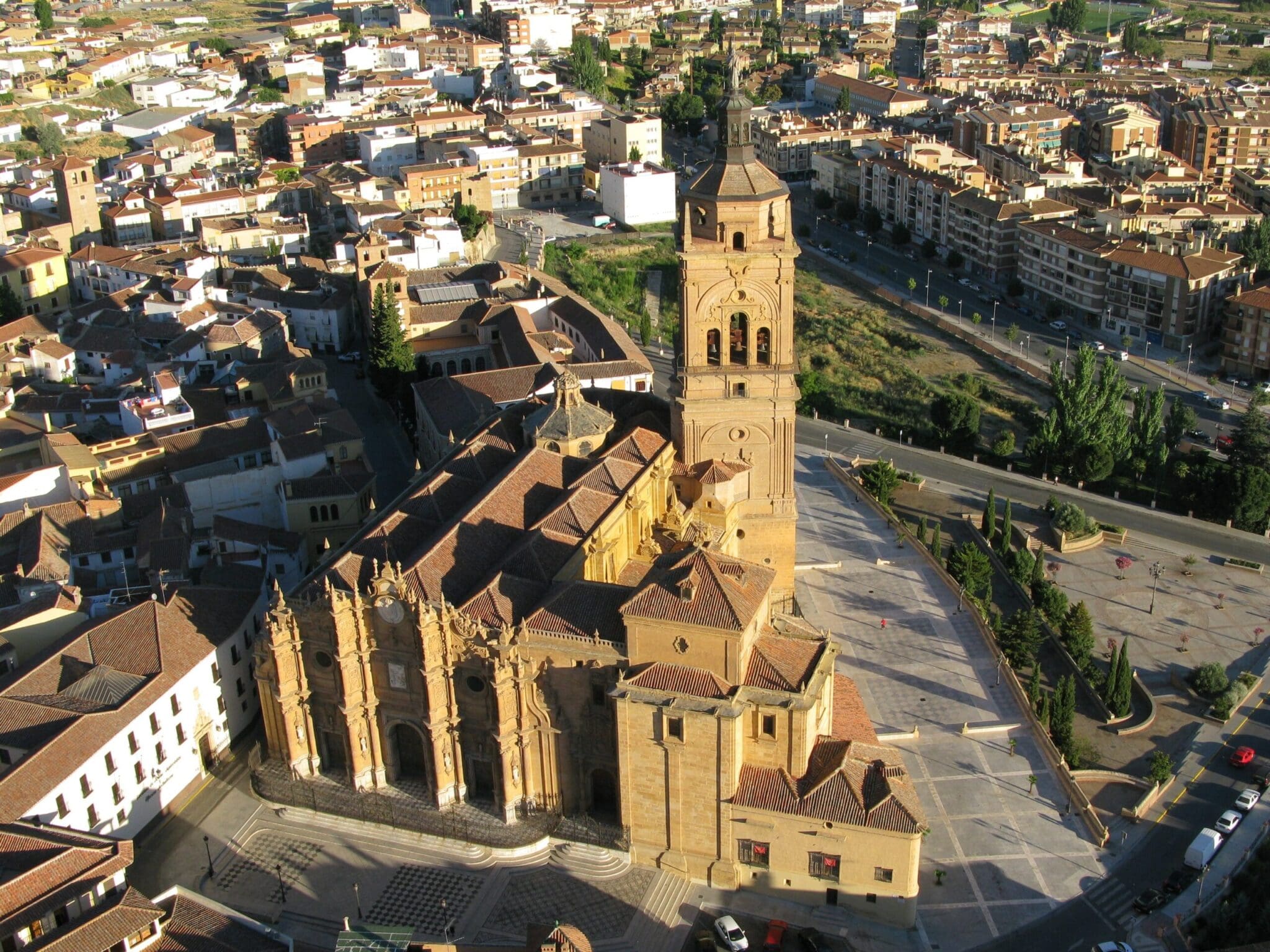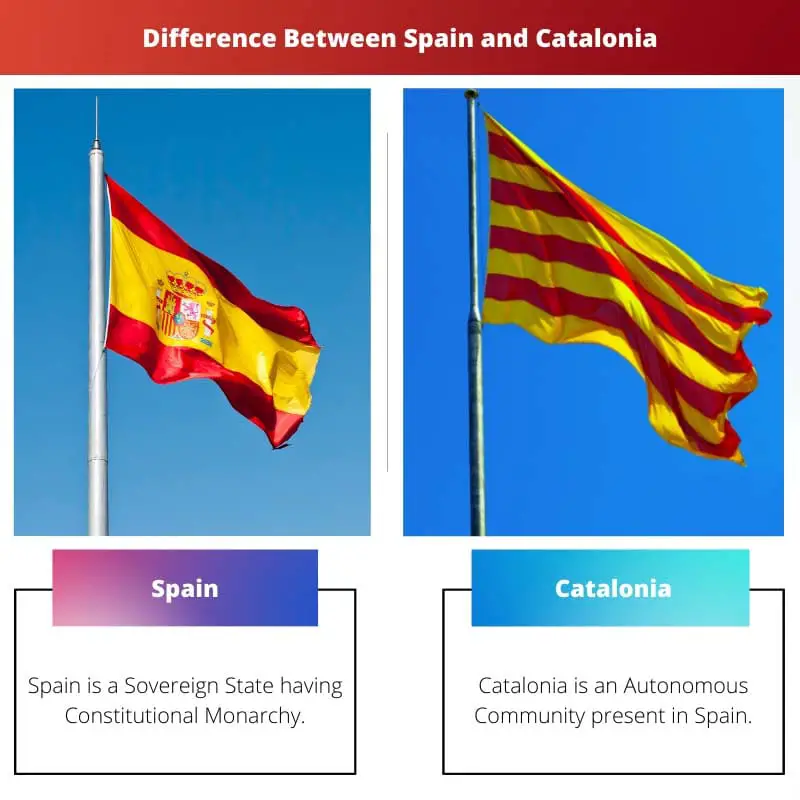Spain, a country famous for the Laliga Football league, competitions like Bullfighting, fests like La Tomatina or the scenic stone castles and snow-capped mountains present all around it in its glory has always been a centre of attraction for tourists.
But do you know what else it has been associated with? It is its diverse culture.
Something which has been a positive and also a negative for the country.
Key Takeaways
- Catalonia is an autonomous region in northeastern Spain with a distinct language, culture, and history.
- Spain has a unitary constitutional monarchy, while Catalonia has a separate government and parliament within the Spanish framework.
- Catalonia has been pushing for independence from Spain, leading to political tensions and conflicts.
Spain vs Catalonia
Spain is a country in southwestern Europe, bordered by France to the north, Portugal to the west, and the Mediterranean Sea to the east and south. Catalonia is autonomously located in northeastern Spain, bordering France and the Mediterranean Sea. Catalonia speaks Catalan, while Spain speaks Spanish.

Spain, a diverse country both geographically and culturally, is located in Southwestern Europe near Portugal, occupying 85 percent of the Iberian Peninsula as well as the Canary and Balearic Islands.
Spain is a different type of Country politically and has 17 autonomous communities in it, which are further subdivided into 50 provinces.
Catalonia is one of the 17 Autonomous communities of Spain present in the northeastern part of Spain and is also recognized as a “Nationality”.
Its capital city is Barcelona which is much more famous worldwide than the National capital Madrid. Catalonia is one of Spain’s richest and tourist-attracting regions and is also famous for sports.
Comparison Table
| Parameters of comparison | Spain | Catalonia |
|---|---|---|
| Land Area | It has a Land Area of 504,782 km2 | It has a land area of 32,114 km2 |
| Political Status | Spain is a Sovereign State having Constitutional Monarchy | Catalonia is an Autonomous Community present in Spain |
| Capital City | Madrid | Barcelona |
| First Official Language | Its official language is Spanish | Its First official language is Catalan |
| National Holiday | The National Day of Spain (October 12) | National Day of Catalonia (September 12) |
| Population | It has almost 47.5 people as of 2021 | It has a population of 7,512,381 people |
What is Spain?
The kingdom of Spain, as we know it today, formed in the 15th Century, when King Ferdinand of Aragon and Queen Isabella of Castile married and united their realms.
That is when Catalonia also became part of Spain.
It is the second-largest country in Western Europe and the fourth-largest country in Europe. Apart from their mainland, they even have some islands in the Mediterranean Sea,
offshore in the Atlantic Ocean, and across the Strait of Gibraltar under their control.
It is widely known for food, traditions, festivals, its rich art and culture, architecture, beaches, and Football. Spain has one of the longest life expectancies, and its health industry is considered to be one of the finest in the world.
Spain is a constitutional Monarchy. The head of the state is King Philip VI, and the head of the executive is the Prime Minister.
The Constitution of the state was adopted in 1978.
The autonomous communities of Spain are a result of diverse economic and social structures, as well as different languages and historical, political, and cultural traditions that are present all over Spain.
Various people of different religions as well as different languages, are present and are experiencing a revival. Even though, during the dictatorship of Franco, these minorities were subjected to violent assimilation.

What is Catalonia?
Catalonia has a distinct culture, language, and anthem and is the most independence-minded region in Spain.
Catalonia’s people have always wanted Independence from Spain, and a few years back, in 2017, a referendum was held, but it was not allowed by Spain as it is against the National Constitution.
Catalonia is the richest region in Spain due to its economy and tourism. And as a matter of fact, it pays more than 10 billion Euros more in tax than it receives in money spent in the region.
Catalonians take pride in their language, and learning it all around Catalonia is mandatory. It closely resembles French and Italian rather than Spanish and Portuguese.
It is spoken more by some nationalists of Catalonia in response to the suppression of the language for many years in the reign of Dictator Franco.
As an autonomous community, it has a different judiciary system and laws. They have their own Parliamentary and police force too.
Throughout history, Catalonians have always identified themselves as an independent nation as they take great pride in their ideology, culture, and heritage, which according to them, is not valued by the Spanish
government, thus raising a strong National identity.

Main Differences between Spain and Catalonia
1. Spain is a sovereign state with a constitutional monarchy, but Catalonia is an autonomous community of Spain, and both of them even have different flags.
2. Madrid is the capital of Spain, has modern style architecture, whereas Catalonia’s capital is Barcelona, with a traditional architectural style.
3. Spain’s official language is Castilian Spanish, but Catalonia has its first language, i.e. Catalan, which closely resembles French, Italian, and Spanish.
4. Spain celebrates its national day on October 12, whereas Catalonia celebrates its national day on September 11.
5. Spain has a tradition of Bullfighting, but Catalonia has a tradition of building “Human Castles”.
6. While people of Spain are considered cheerful and entertainment seekers; Catalans are more hardworking, business-minded people






